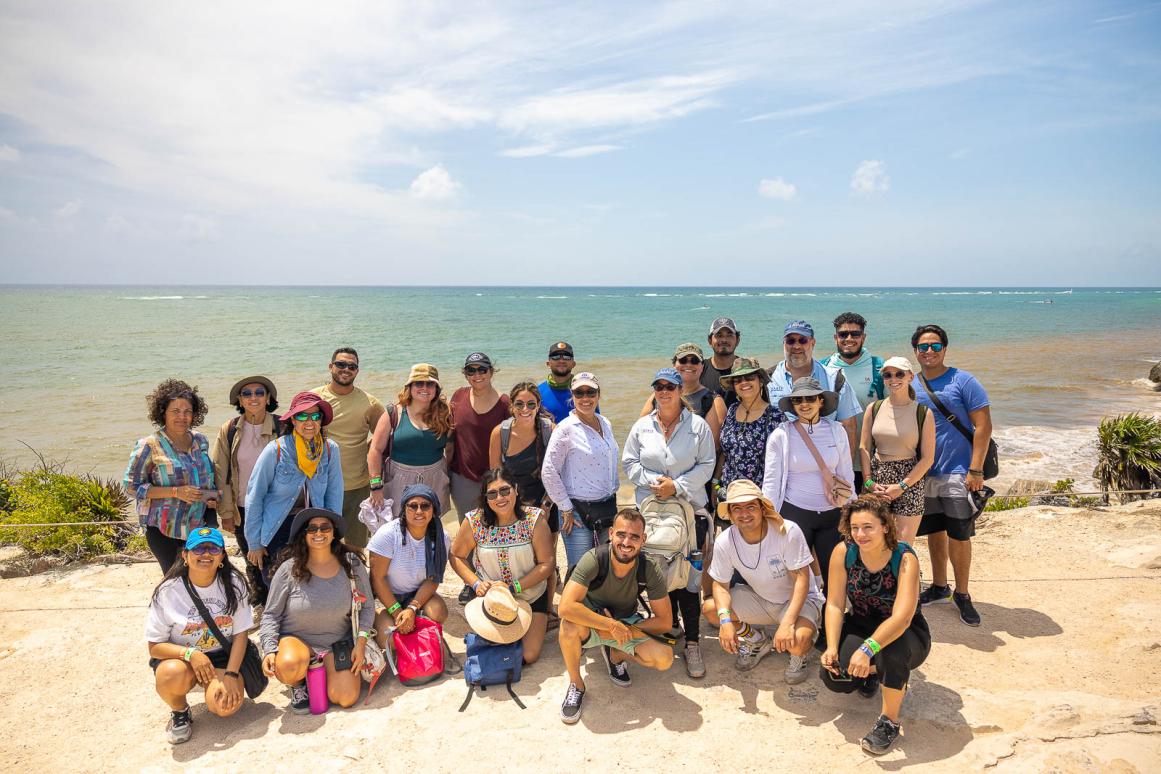Seventh SWIMM Workshop Brings Together Future Gulf of Mexico Leaders

The 2023 Student Workshop on International Coastal and Marine Management (SWIMM) brought together current and future Gulf leaders in Cancun, Mexico to discuss and collaborate on recreational fisheries issues facing the United States, Mexico, and Cuba. Sixteen graduate students from various institutions participated. The program was led by faculty from the Harte Research Institute for Gulf of Mexico Studies (HRI) at Texas A&M University-Corpus Christi, the Faculty of Science at the Universidad Autónoma de México and the Centro de Investigaciones Marinas at the Universidad de La Habana.
The in-person portion of this year’s workshop took place in mid-May in coordination with the first ever Latin America and Caribbean Fisheries Congress (LACFC), where SWIMM program participants hosted a special symposium focused on current management and future changes for recreational fisheries around the Gulf of Mexico and Caribbean. While participating in the LACFC, students and researchers took part in valuable discussions and presentations, allowing them the opportunity to connect with experts and peers from different parts of the world. Multiple research groups from HRI were also in attendance at the LACFC, allowing for interdisciplinary collaboration with SWIMM program participants.
The purpose of SWIMM is to bring together graduate students—tomorrow’s Gulf leaders, advocates, and educators—to develop innovative, integrative, and sustainable solutions to common socio-environmental challenges.
"Working together in the face of tough challenges can be difficult even at the local or regional scale, but with SWIMM, we take it to the next level,” said Dr. Mark Besonen, HRI Chair for International Programs. “We bring together folks from different countries with different languages, different cultures, different histories, different political and legal systems, different socio-economic and infrastructural capacities, and have them focus on a common problem that affects the Gulf of Mexico.”
Besonen went on to say that despite all these differences, the Gulf is a shared resource among the U.S., Mexico, and Cuba, so learning how to work together to maintain it as a healthy, productive, and sustainable ecosystem is in everyone’s best interest.
“The SWIMM program is a tough and intense experience for everyone involved, for sure, but it is also massively rewarding, and lets the students develop bonds that lead to life-long friendships and collaborations,” Besonen said.
To enhance their learning experience, students participated in additional day trips outside Cancun. The first trip was to Tulum, where participants visited Mayan archaeological ruins. Later, the participants visited nearby cenotes to learn about the historical, geological, and ecological significance of these natural resources.
The second trip, an overnight excursion to Río Lagartos, allowed the participants to explore a small-scale recreational fisheries operation, engage with local stakeholders, and the chance to witness real-world applications of sustainable fishing practices.
Following the in-person part of the workshop in Cancun, participants have continued to work together virtually with the goal of developing surveys for both recreational fishers and service providers for the sector to help estimate the economic value of recreational fisheries across the Gulf of Mexico. Results from this effort will be used to develop a publication that is released in spring 2024.
SWIMM is funded in part by the National Academies of Science Gulf Research Program and the HRI Furgason International Fellowship.
